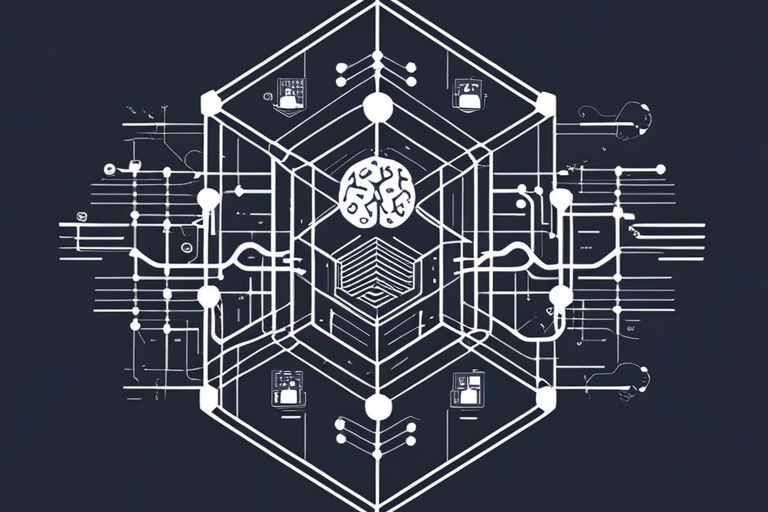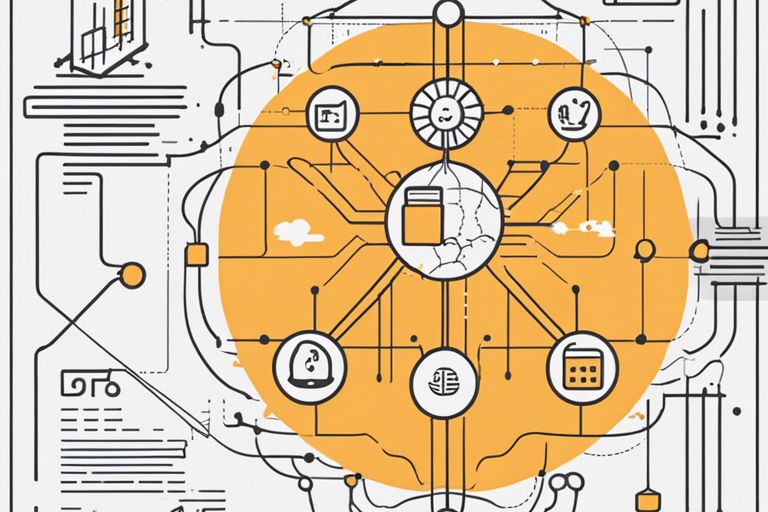It’s no secret that Artificial Intelligence (AI) has become an integral part of our daily lives, with applications ranging from consumer tools to complex enterprise systems.
In recent years, advancements in AI technology have propelled the field to new heights, with innovations like the Generative Pre-Training Transformer making waves in the mainstream. Models such as OpenAI’s DALL-E text-to-image tool and ChatGPT have captivated audiences and reshaped our perceptions of AI.
However, the true power of AI lies in its ability to rationalize and take actions that optimize results, a quality that has revolutionized industries from finance to healthcare. While the rise of AI brings immense potential for progress, it also raises concerns about privacy, ethics, and employment.
As we navigate this new frontier, it is crucial to understand the capabilities and implications of artificial intelligence in our rapidly evolving world.
Key Takeaways:
- Artificial Intelligence (AI): Refers to the simulation of human intelligence in machines through software-coded heuristics.
- Real-World Applications: AI is extensively used across various industries, including healthcare, finance, and transportation, for tasks like diagnostics, financial forecasting, and autonomous vehicles.
- Evolving Technology: AI encompasses subfields like machine learning and deep learning, with the potential for future advancements such as AGI (Artificial General Intelligence), posing ethical and societal challenges.
The Mechanisms of AI
Understanding Machine Learning
To understand Artificial Intelligence (AI), one must grasp the concept of machine learning. If AI is the brain, then machine learning is the heartbeat that drives its growth. Machine learning allows computer programs to automatically learn from and adapt to new data without human intervention.
To put it simply, machine learning is the fuel that powers AI’s ability to rationalize and take actions towards achieving specific goals.
The Role of Algorithms in AI
To explore deeper into the world of AI, one must explore the crucial role of algorithms. One of the key components of AI, algorithms are the backbone of its functioning. With the ability to process vast amounts of data and make complex decisions, algorithms are the driving force behind AI’s capabilities.
With the right algorithm in place, AI systems can perform tasks ranging from simple to highly sophisticated with precision and efficiency.
With the rapid advancements in AI technology, the role of algorithms has become even more critical. Algorithms are used to power recommendation systems, process natural language, and enable autonomous vehicles, among many other applications. They form the basis of AI’s problem-solving capabilities and play a vital role in shaping the future of technology.

Applications of AI in Various Industries
AI in Healthcare
Even in the field of healthcare, Artificial Intelligence (AI) is revolutionizing the way medical professionals diagnose and treat patients. Various AI technologies are being used to assist in diagnostics, identify anomalies in scans, and help in triangulating diagnoses based on patient symptoms and vitals.
AI also plays a crucial role in patient classification, medical records management, and processing health insurance claims. The future of AI in healthcare holds the promise of AI-assisted robotic surgery, virtual nurses or doctors, and collaborative clinical judgment.
AI in Finance and Banking
With the advancements in AI technology, the finance and banking industry is embracing AI solutions to improve efficiency and accuracy in various processes.
To detect and flag unusual activity such as fraud or streamline trading activities. AI is being used to gain insights into customer behaviour, improve risk assessment, and enhance overall decision-making processes in the industry.
AI in finance and banking plays a crucial role in optimizing operations, reducing potential risks, and enhancing customer experiences.
Ethical and Societal Implications of AI
The Impact of AI on Employment
Many are concerned about the impact of AI on employment, with fears that advanced AI technologies may lead to job displacement. One report suggests that self-driving cars could eliminate the need for taxi drivers and car-share programs, while machines could replace human labor in various industries.
As AI continues to advance and automate tasks, it becomes crucial for policymakers and businesses to consider strategies to adapt to a changing job market.
Privacy and Security Concerns
With the increasing integration of AI into various aspects of daily life, privacy and security concerns are paramount. Issues such as machine hacking into personal data and the potential weaponization of AI raise ethical dilemmas that need to be addressed. Organizations need to prioritize data security and privacy protection measures to prevent misuse of AI technology.
Advancements and The Future of AI
The Progress Towards Artificial General Intelligence (AGI)
On the path to achieving artificial general intelligence (AGI), significant strides have already been made in the field of artificial intelligence. According to Britannica, AGI is a proposed type of AI that can understand, learn, and apply its intelligence to a wide range of problems, much like a human being.
While narrow AI systems excel at specific tasks, the development towards AGI aims for a more adaptable and human-like intelligence.
Predictions for AI Development and Integration
Future predictions for AI development and integration point towards a rapidly evolving technology that has the potential to revolutionize various industries. As AI continues to advance, the technology holds immense potential for healthcare, finance, transportation, and more.
With the growth of AI systems like OpenAI’s ChatGPT, major advancements are on the horizon, leading to innovative applications and improved efficiency in a variety of sectors.
Summing up
The rapid evolution of Artificial Intelligence (AI) has revolutionized various industries, from healthcare to finance, with its ability to simulate human intelligence through machines. AI encompasses different types, from weak AI, focused on specific tasks to the theoretical concept of AGI (Artificial General Intelligence).
The real-world applications of AI are vast and continue to expand, with advancements seen in diagnostics, financial forecasting, autonomous vehicles, and more. While AI offers immense potential for progress, it also raises concerns regarding ethics, privacy, and employment.
As technology continues to advance, careful consideration of the societal and ethical impacts of AI is crucial for responsibly harnessing its benefits.
